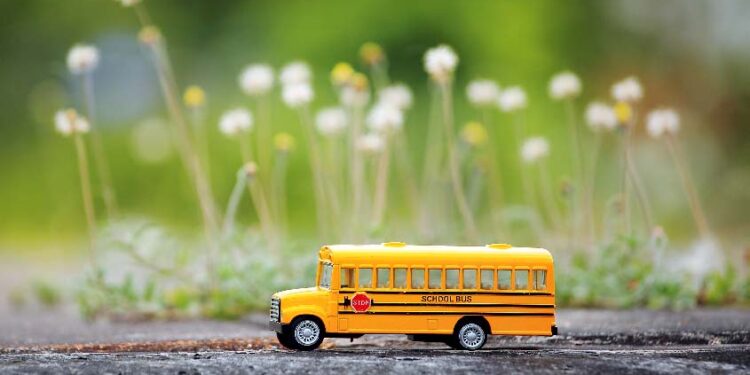In today’s dynamic educational environment, school excursions are becoming increasingly essential as a pedagogical tool that extends the classroom boundaries to broader, real-world contexts. These excursions not only break the monotony of traditional learning but also enhance it by integrating experiential learning frameworks that are crucial for comprehensive education. This article delves into the significant role that field trips play in experiential learning, offering students a tangible, interactive experience that helps solidify their academic knowledge through practical application.
Understanding Experiential Learning
Experiential learning is a well-established educational theory, pioneered by notable theorists like John Dewey and David Kolb, which posits that knowledge is constructed through real-world, practical experiences. Unlike conventional learning methods that often rely on passive memorisation, experiential learning involves active engagement, where learners are encouraged to engage in direct encounters with the phenomena being studied. This method’s efficacy stems from its focus on critical reflection, which helps students assimilate and accommodate new information, thereby fostering deeper understanding and retention.
Experiential learning can take many forms, but school excursions are particularly potent because they provide immersive, hands-on experiences that are hard to replicate within the four walls of a classroom. When students step outside their usual learning environments, they are exposed to novel stimuli that provoke curiosity and drive inquiry, which are foundational elements of effective learning.
The Role of School Excursions
School excursions serve as a critical component of experiential learning by blending academic objectives with real-world experiences. These outings are meticulously planned to align with curricular goals and provide learners with opportunities to explore concepts in vivid, engaging, and applicable settings. Whether it’s a visit to a historical museum, a scientific center, or an ecological park, each excursion is designed to augment the school’s curriculum and bring textbooks to life.
For instance, marine biology students visiting AQWA can observe marine life in its natural habitat, which enriches their understanding of marine ecosystems, biodiversity, and conservation challenges. Such experiences not only reinforce theoretical knowledge but also highlight its practical implications.
Benefits of Experiential Learning through School Excursions
A. Enhancement of engagement and motivation in learning
Field trips are instrumental in boosting student engagement and motivation. By participating in school excursions, students often rediscover their enthusiasm for learning, as these experiences provide a refreshing break from routine classroom activities. Engaging directly with materials and environments that are relevant to their studies ignites passion and excitement, which enhances their motivation to learn and participate actively.
Moreover, when students understand that their classroom lessons have real-world applications, their academic pursuits start to feel more valuable. This relevance is particularly crucial in maintaining adolescent learners’ concentration and interest, as they often seek purpose and immediate application in their educational journeys.
B. Improvement of social skills and team building
Social skills and team building are also greatly enhanced during school excursions. Students are placed in new settings where they must interact, communicate, and collaborate with peers and educators outside their normal social circles. This not only helps in building interpersonal relationships but also encourages the development of soft skills like communication, leadership, and teamwork.
These outings provide a platform for students to express themselves, negotiate, share ideas, and support one another, fostering a sense of community and cooperation. Such skills are indispensable in the real world, making school excursions critical in preparing learners for future social and professional environments.
C. Real-world connection and application of knowledge
School excursions excel in bridging the gap between academic theory and real-world practice. They provide a context for students to apply classroom knowledge in genuine situations, which helps cement learning. For example, a trip to a historical site allows students to better grasp and connect with historical events compared to classroom lectures or textbook readings alone.
This application of knowledge not only deepens understanding but also enhances students’ ability to transfer what they’ve learned to varying contexts. It encourages them to think about how they can use their knowledge in their own lives, potentially sparking interest in new career paths or studies.
D. Enhancement of critical thinking and problem-solving skills
Critical thinking and problem-solving skills are significantly sharpened through school excursions. These experiences often challenge students to think on their feet and solve problems in unpredictable, complex environments. Whether navigating through a large museum or conducting field research in a nature reserve, students must use their judgment and decision-making skills to manage tasks and make informed decisions.
These critical thinking opportunities are invaluable, as they provide students with the tools to approach problems methodically and creatively in their future academic and professional careers.
Conclusion
In conclusion, school excursions are a fundamental component of experiential learning, offering diverse benefits that enhance educational outcomes. From improving engagement and motivation to developing critical interpersonal and cognitive skills, field trips are indispensable in nurturing well-rounded, competent learners. By extending learning beyond the classroom, school excursions provide meaningful, memorable educational experiences that students are not only likely to enjoy but also to benefit from academically and personally in the long term.
As educators and institutions continue to recognise and harness the power of these experiences, students are poised to reap the benefits of an enriched, experiential education.






